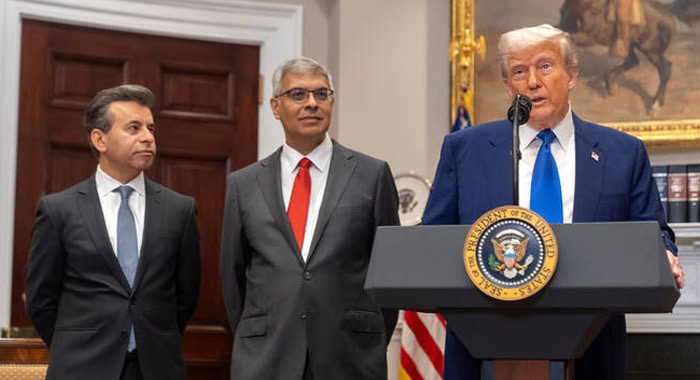U.S. President Donald Trump has once again claimed credit for defusing heightened tensions between Pakistan and India, asserting that the breakthrough was achieved through his personal intervention and trade diplomacy. Speaking at the White House after a meeting with South African President Cyril Ramaphosa, Trump announced that major agreements with both South Asian nations are on the horizon.
“The situation between Pakistan and India was spiraling out of control,” Trump told reporters. “It was a deep, dangerous, and worsening conflict. But we stepped in and handled it—largely through trade and strong communication.”
Trump directly addressed President Ramaphosa, saying, “Just look at what we did with Pakistan and India. We resolved the entire issue. I believe it was through trade, and now we’re working on some very big deals with both countries.”
Recounting the escalation, Trump said he confronted the two sides amid rising hostilities. “I told them, ‘What are you people doing?’ Someone was going to end up pulling the trigger,” he said. “There was a spike in cross-border firing, the crisis was deepening, and the conflict was beginning to spill into other regions.”
“We opened channels, we talked, and I believe we brought the situation under control,” he added. “But then, two days later, something else happens, and they blame me. They say, ‘It’s Trump’s fault.’”
The U.S. President also spoke warmly about leadership in both countries. “There are some remarkable people in Pakistan, and there’s a great leader there. In India, I have a friend—Prime Minister Narendra Modi—a tremendous person and a very strong leader,” Trump said. “I called both of them, and we did something good together.”
Trump went on to reference his efforts to mediate in other global conflicts, noting a recent two-and-a-half-hour call with Russian President Vladimir Putin about the ongoing war in Ukraine. “Every week, around 5,000 soldiers are dying there—and that doesn’t even include the civilian casualties in cities and towns,” he said.
The President’s remarks signal a continued emphasis on direct diplomacy and deal-making as hallmarks of his foreign policy approach, as he positions himself at the center of some of the world’s most volatile flashpoints.





